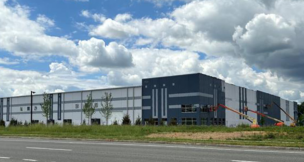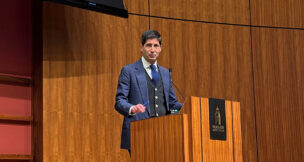VCU Wilder School names new dean
Virginia Commonwealth University announced Wednesday that Susan T. Gooden is now dean of the university’s L. Douglas Wilder School of Government and Public Affairs. Gooden has been the interim dean of the school since May 2018 and has been with VCU since 2004, when she started as an associate professor in the Wilder School. She […]
VCU College of Humanities and Sciences appoints dean
Jennifer Malat will be dean of the Virginia Commonwealth University College of Humanities and Sciences effective July 1, the university announced Tuesday. Malat is currently the divisional dean for social sciences at the University of Cincinnati (UC) College of Arts and Sciences and oversees academic affairs, faculty affairs and research. Before serving as dean, she […]
VCU Honors College names new dean
Virginia Commonwealth University has tapped Scott C. Breuninger as dean of its honors college, VCU announced Friday. Breuninger starts on July 1. Breuninger currently works with the University of South Dakota (USD) as the director of its honors program and as an associate professor of history. He has been with USD since 2011 and grew […]
VCU receives $2.5M grant to extend battery life development
Virginia Commonwealth University researchers will receive a $2.5 million research grant from the U.S. Department of Energy (DOE) to develop long-lasting rechargeable batteries, the university announced Thursday. VCU researchers believe they can significantly extend battery life, drive down costs and reduce safety risks by redesigning materials found in lithium-ion batteries, which are commonly use[...]
VCU Health proposes medical complex as part of Navy Hill project
The $1.5 billion Navy Hill project — as proposed — may be killed next Monday by Richmond City Council, but that hasn’t stopped Virginia Commonwealth University and other heavy hitters from making economic development announcements in an effort to salvage the controversial project. VCU Health System announced Tuesday that it would build a complex in […]
Three Va. universities ranked among top 10 in nation for online degrees
Online degrees from three Virginia universities were cited in the U.S. News & World Report’s 2020 Best Online Programs rankings. The University of Virginia’s Curry School of Education and Human Development was ranked third in the nation for online master’s in education programs. Master’s degrees offered through the online program include administration and supervision; [...]















